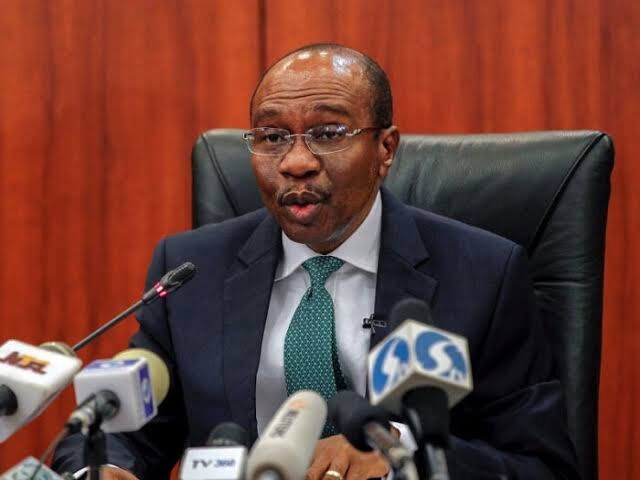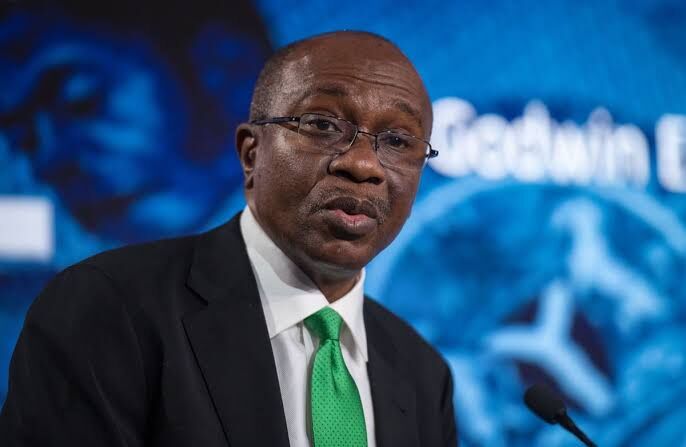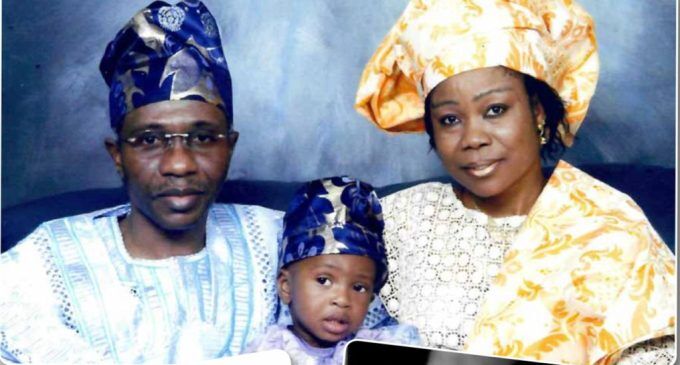Godwin Emefiele has been the Governor of the Central Bank of Nigeria since June 4, 2014.
Table of Content hide 1 Godwin Emefiele Biography 2 Career 3 CBN 4 Achievements 5 Controversies 6 Godwin Emefiele net worth 7 President 8 Family 9 Salary 10 ConclusionGodwin Emefiele Biography
Godwin Emefiele is from Ika South, Agbor region of Delta State, born on August 4, 1961, in Lagos State, Nigeria.
Emefiele attended the prestigious Ansar Ud-deen Primary School and Maryland Comprehensive Secondary in Lagos. He enrolled at the University of Nigeria Nsukka (UNN), earning a degree in Banking and Finance in 1984. He graduated as one of his class’s top students.
Godwin Emefiele returned to UNN soon after completing his National Youth Service to earn a master’s in finance, in 1986. He also attended executive education programs at Stanford University, Harvard University, and the Wharton School of Business (2005). UNN gave him an honorary doctorate degree in business administration.
Career

Emefiele lectured on insurance and finance early in his career at UNN and the University of Port Harcourt. Additionally, he briefly worked for Vodafone.
Emefiele had over 18 years of financial expertise before joining the CBN. He was the group managing director and CEO of Zenith Bank Plc. He held the position of deputy managing director at Zenith Bank in 2001.
ALSO READ: Sanusi Lamido: Biography, career, achievements, controversies, net worth
He was a founding member of Zenith Bank Plc’s management team and served as executive director in charge of corporate banking, treasury, financial control, and strategic planning. At Zenith Bank Plc and Zenith Bank (Gambia) Limited, Emefiele held the director position. Emefiele oversees ACCION Microfinance Bank Limited as a director.
CBN

Emefiele has served as the Nigerian Central Bank’s governor since 2014. At the president’s direction, he oversaw an interventionist currency policy during his first tenure that involved flooding the foreign exchange market with billions of dollars to support the Nigerian Naira. He also instituted a multiple exchange rate regime to hide the pressure on the Naira and prevent a string of devaluations.
The Nigerian Senate granted Emefiele a second five-year term in 2019. Since the return of democracy to Nigeria in 1999, no one has been elected to a second term. Senator Bukola Saraki notified the Senate via a letter from President Buhari on May 9, 2019. He underwent a screening on Wednesday, and on May 16, 2019, he received confirmation.
Achievements
According to Osita Nwanisobi, acting director of the CBN’s corporate communications division, the CBN, under Emefiele’s leadership, adopted several interventions that were the result of market failure and other crucial problems inside the country’s economic sector.
The CBN now has 37 intervention funds to boost the economy and alleviate the unemployment problem. Looking at some of his most notable accomplishments to date, it can be seen that the largest economy in Africa had experienced significant growth in bank credit to the private sector, which increased by 92.79 percent annually to N32.64 billion in June 2021 from N16.93 billion in June 2014, when Emefiele was appointed CBN governor.
The Loan to Deposit Ratio (LDR) policy, which Emefiele and the CBN implemented in September 2019, was the primary factor for the enormous surge in bank lending. As part of the Emefiele-led Central Bank’s development finance initiatives, N756.51 billion was given to 3,734,938 small-holder farmers who cultivated 4.6 million hectares of land.
Of that amount, N120.24 billion was extended for the 2021 wet season to 627,051 farmers for 847,484 hectares of land under the Anchor Borrowers’ Programme (ABP); N121.57 billion was given to 32,617 beneficiaries of the Agribusiness (SMEs).
Additionally, the bank distributed N3.0 billion to 7,057 recipients under the National Youth Investment Fund (NYIF), of whom 4,411 were individuals and 2,646 were SMEs. N3.22 billion was given to 356 beneficiaries under the Creative Industry Financing Initiative (CIFI), which covered the IT, software development, fashion, and film distribution sectors.
The CBN disbursed N923.41 billion to 251 real sector projects as part of the N1.0 trillion Real Sector Facility, of which 87 were in light manufacturing, 40 were in the agro-based industry, 32 were in services, and 11 were in mining.
Twenty-six pharmaceutical projects and 77 hospital services projects totalling N98.41 billion were funded from the N100 billion Healthcare Sector Intervention Facility (HSIF). The CBN Healthcare Sector Research and Development Intervention (Grant) Scheme (HSRDIS) also distributed N232.54 million to five beneficiaries to create testing kits and devices for Covid-19 and Lassa Fever.
ALSO READ: Charles Soludo: Biography, career, governorship stint, achievements
Controversies
All financial institutions received a mandate in February 2021 prohibiting them from dealing with cryptocurrency. He based his choice on the argument that cryptocurrencies are being used to fund terrorists.
The choice to stop the flow of money that funds terrorists in the nation was made to support the government’s fight against terrorism. Thus, cryptocurrencies like Bitcoin, Litecoin, Binance, and Ethereum—which he refers to as a currency created out of thin air—are prohibited.
A few months after he banned cryptocurrencies and forbade Nigerian banks from conducting transactions in them, the CBN announced the launch of the eNaira, a digital currency that it controls. He clarified that the Central Bank Digital Currency (CBDC), also known as the eNaira, was not a substitute for actual money.
He faced criticism for using the blockchain technology he had previously cracked down on. In addition, Godwin Emefiele faced criticism for not only using blockchain technology for the eNaira project but also for hiring Bitt Inc., a Barbados-based company.
Some people did not like this because they thought the CBN purposefully ignored Nigerian blockchain expertise with its preference. People weren’t happy, despite the CBN’s swift defence of its selection of Bitt Inc. with the assertion that all contractors were given an equal opportunity to bid for the contract.
Godwin Emefiele entered into partisan politics in a first for any head of the Nigerian central bank, defying the Central Bank Act’s requirements that the governor must always maintain his or her independence and apolitical stance in order to maintain the bank’s nonpartisan stance.
The nation erupted in outrage when news broke in May 2022 that Emefiele was seeking to replace President Muhammadu Buhari in the 2023 election. What began as a rumour when campaign posters for the bank governor flooded Abuja, the nation’s capital, gained momentum when a group of alleged rice farmers bought the All Progressives Congress (APC) presidential form for the Governor of the Central Bank of Nigeria.
Emefiele announced he would not be running for president in a series of tweets sent from his verified account. But in a sudden turn of events, Emefiele filed a complaint at the Federal High Court in Abuja, asking the court to issue an injunction telling the electoral commission and the attorney general’s office not to prevent him from running for president.
The court declined the plea but encouraged the pair to formally argue why Emefiele’s motion shouldn’t be granted. In numerous court proceedings, Nigerians and civil society organizations have called for the dismissal of the CBN Governor for breaking the rules of the apex bank act.
Godwin Emefiele net worth
His net worth is estimated at $2 million.
President
In May 2022, Emefiele announced he was running for Presidency under the All Progressives Congress. He, however, withdrew from the presidential race.
Family

He is married to Margaret Emefiele, and they have two children, Godwin Jr. and Andrew Emefiele
Salary
He is one of the top-paid CEOs in Nigeria. His monthly pay as governor of the Central Bank of Nigeria is reportedly N9 million.
Conclusion
Godwin Emefiele is a dedicated and hardworking man who is interested in seeing the nation prosper.
ALSO READ: Ezekwesili: Biography, career, govt stints, politics, family
ncG1vNJzZmivp6x7tLfAm5isoF6YvK57xqibsKGeYrKuscWinKWdXZe2sLPRmqehsV8%3D